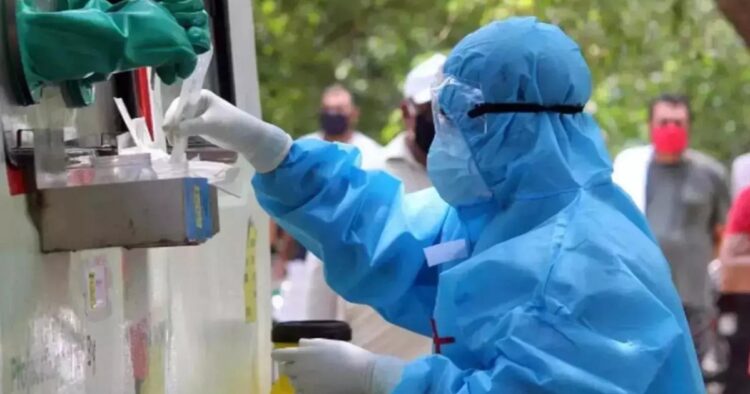As of December 26, the Health Ministry in Bharat has reported a total of 109 cases of the JN.1 COVID variant. The cases are distributed across various states, with 36 in Gujarat, 34 in Karnataka, 14 in Goa, 9 in Maharashtra, 6 in Kerala, 4 each in Rajasthan and Tamil Nadu, and 2 in Telangana.
Amid concerns about the new variant, Dr. Bobby Bhalotra from Gangaram Hospital reassured that, for now, the JN.1 variant appears to be milder. He mentioned that the variant belongs to the Omicron family and suggested that there’s no need for panic. However, he emphasized the importance of taking precautions due to its higher infectiousness compared to the regular COVID virus.
Dr. Bhalotra highlighted a rise in respiratory illness cases, attributing it to weather changes, viral infections, and increased pollution in the national capital. Patients with pre-existing conditions like Asthma, interstitial lung disease, or COPD are experiencing exacerbations, often triggered by various viruses, including H1N1 (swine flu). Despite vaccines being available, delays in inoculation contribute to these issues.
The doctor stressed the significance of timely testing for individuals with persistent fever, decreased oxygen levels, and respiratory symptoms. He mentioned that antiviral medications are available for conditions like COVID and H1N1.
Addressing the impact of pollution, especially in the city, Dr. Bhalotra stated that it significantly affects patients with respiratory conditions. He urged people to maintain precautions such as maintaining distance, hand hygiene, and wearing masks, especially in crowded places.
Regarding the JN.1 variant, recently classified by the World Health Organization (WHO) as a variant of interest, the overall risk is deemed low based on current evidence. Dr. Bhalotra noted that the symptoms of JN.1 vary and, in some cases, may not include typical signs like fever, muscle pain, or cough. Patients infected with this variant are reportedly recovering within a week, although those with pre-existing health conditions may take longer.
In conclusion, health experts advise the public to remain vigilant, follow preventive measures, and seek medical attention promptly if experiencing symptoms or complications.

















Comments